Israeli Prime Minister Benjamin Netanyahu has has asked the families of six hostages whose bodies were recovered over the weekend for forgiveness.
He also pushed back against a new wave of pressure to reach a ceasefire deal in Gaza after hundreds of thousands of Israelis protested and went on strike and US President Joe Biden said he needed to do more after nearly 11 months of fighting.
"I told the families, and I repeat and say this evening: I am asking for your forgiveness that we didn't manage to bring them back alive. We were very close but we couldn't make it," the prime minister said at a press conference on Monday (early Tuesday AEST).
READ MORE: Brittany Higgins' lawyers label Linda Reynolds 'an unreliable witness'
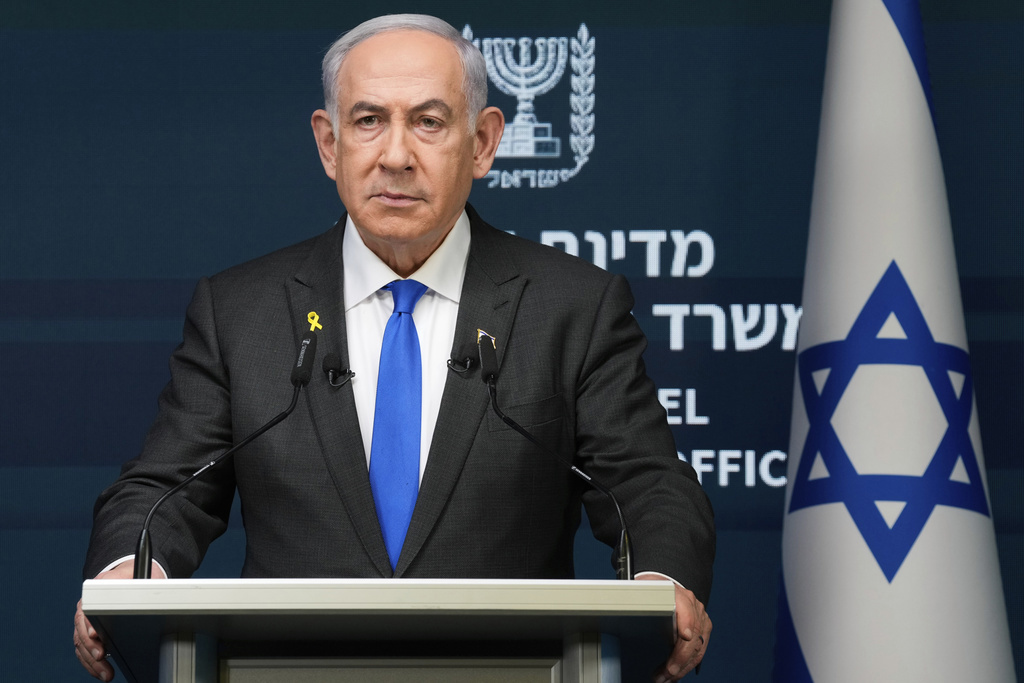
In his first public address since Sunday's mass protests showed many Israelis' furious response to the discovery of six more dead hostages, Netanyahu said he will continue to insist on a demand that has emerged as a major sticking point in talks.
That demand is continued Israeli control of the Philadelphi corridor, a narrow band along Gaza's border with Egypt where Israel contends Hamas smuggles weapons into Gaza. Egypt and Hamas deny it.
Netanyahu called the corridor vital to ensuring Hamas cannot rearm via tunnels.
"This is the oxygen of Hamas," he said.
He added: "No one is more committed to freeing the hostages than me. But no one will preach to me."
Israelis had poured into the streets late on Sunday in grief and anger in what appeared to be the largest protest since the start of the war. The families and much of the public blamed Netanyahu, saying the hostages could have been returned alive in a deal with Hamas. A rare general strike was held across the country on Monday.
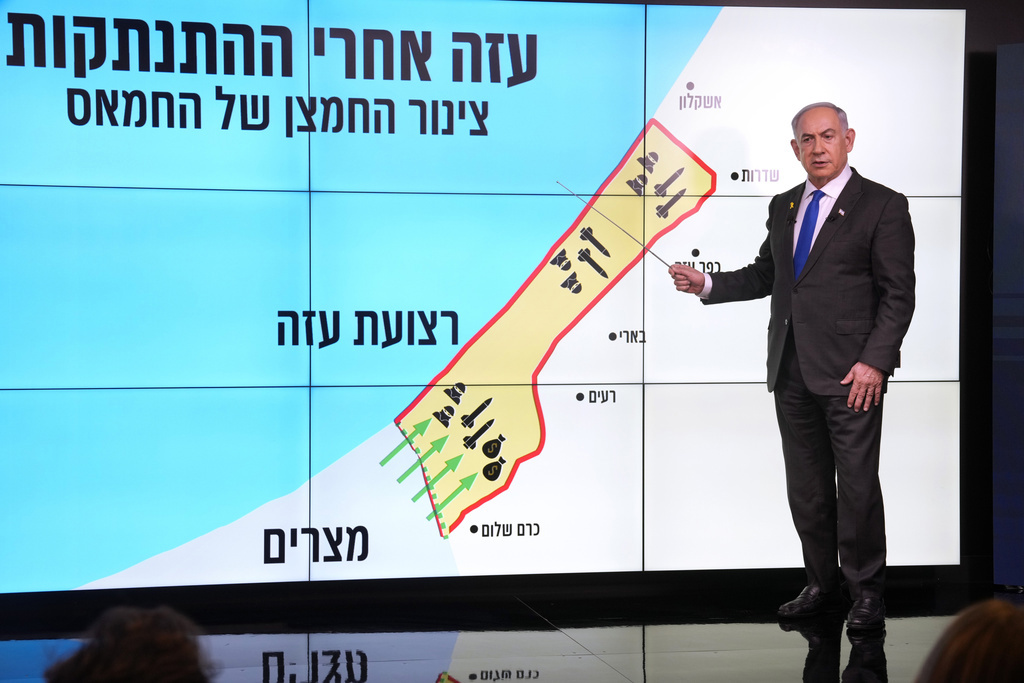
But others support Netanyahu's drive to continue the campaign in Gaza, which was triggered by Hamas' October 7 attack into Israel and has caused massive death and destruction in the territory. Netanyahu says the assault will force militants to give in to Israeli demands, potentially facilitate rescue operations and ultimately annihilate the group.
Key ally the US is showing impatience. Biden spoke to reporters as he arrived at the White House for a Situation Room meeting with the US mediation team in the negotiations. Asked if Netanyahu was doing enough, Biden responded, "No".
He insisted that negotiators remain "very close" to a deal, adding, "Hope springs eternal".
Hamas has accused Israel of dragging out months of negotiations by issuing new demands, including for lasting Israeli control over the Philadelphi corridor and a second corridor running across Gaza.
READ MORE: Jetson thought he was taking pill to help sleep, but it killed him
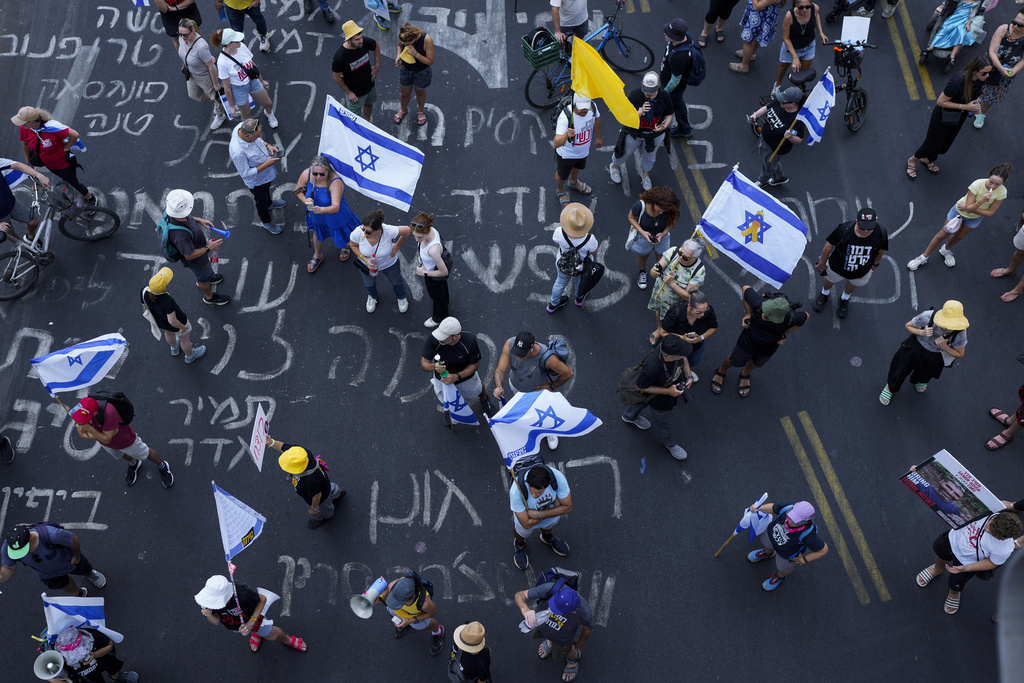
Hamas has offered to release all hostages in return for an end to the war, the complete withdrawal of Israeli forces and the release of a large number of Palestinian prisoners, including high-profile militants — broadly the terms called for under an outline for deal put forward by Biden in July.
Netanyahu has pledged "total victory" over Hamas and blames it for the failure of the negotiations.
On Monday, he said he is ready to carry out the first phase of the ceasefire — a plan that would include the release of some hostages, a partial pullout of Israeli troops and the release of some prisoners held by Israel.
But he rejected Hamas' key demand of a full withdrawal from Gaza and said he does not see any other party beside Israel capable of securing Gaza's borders and preventing arms smuggling.
Israeli media have reported deep differences between Netanyahu and top security officials, including Defence Minister Yoav Gallant, who say the time is ripe for a ceasefire.
READ MORE: Weeks before first baby arrives, dad killed 'for no apparent reason'
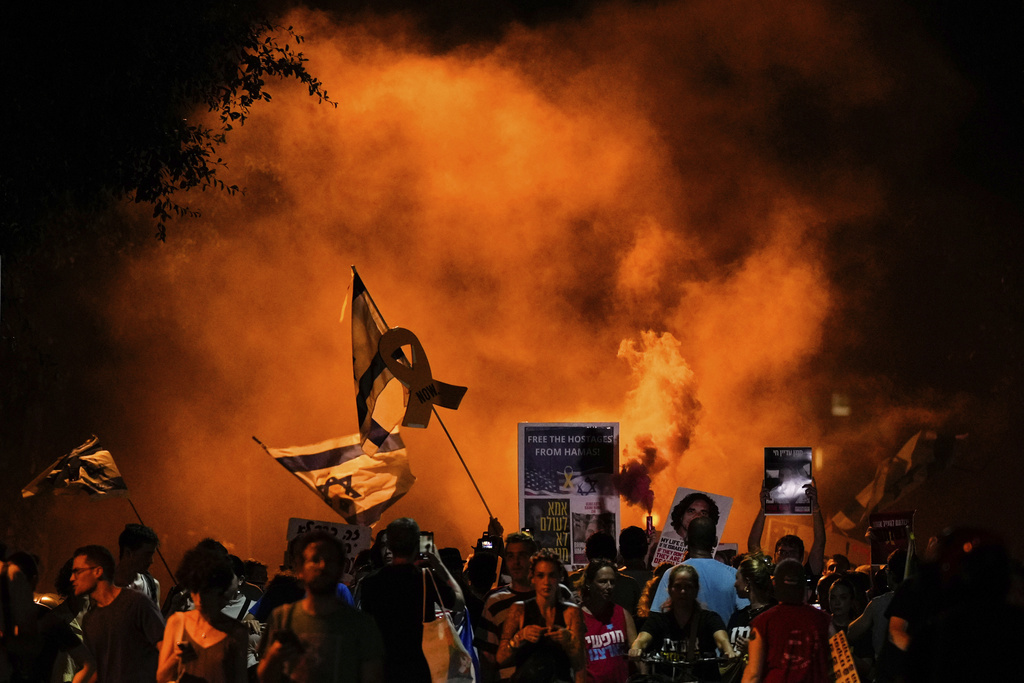
An official confirmed a shouting match between Gallant and Netanyahu at a security cabinet meeting on Thursday, where Netanyahu held a vote in favour of maintaining control over the Philadelphi corridor.
Gallant cast the lone vote against the proposal, saying Netanyahu was favouring border arrangements over the lives of hostages. The official spoke on condition of anonymity to discuss the closed-door meeting. Gallant on Sunday called on the security cabinet to overturn the decision.
Khalil al-Hayya, the Hamas official leading the negotiations, told the Qatari network Al Jazeera late Sunday that Netanyahu had deemed keeping the Philadelphi corridor "more important" than winning the hostages' release.
Al-Hayya also said Hamas had offered "great flexibility", including reducing its demand for 500 Palestinian prisoners to be released in exchange for each captive Israeli soldier to 50, and from 250 Palestinian prisoners or each Israeli civilian hostage to 30.
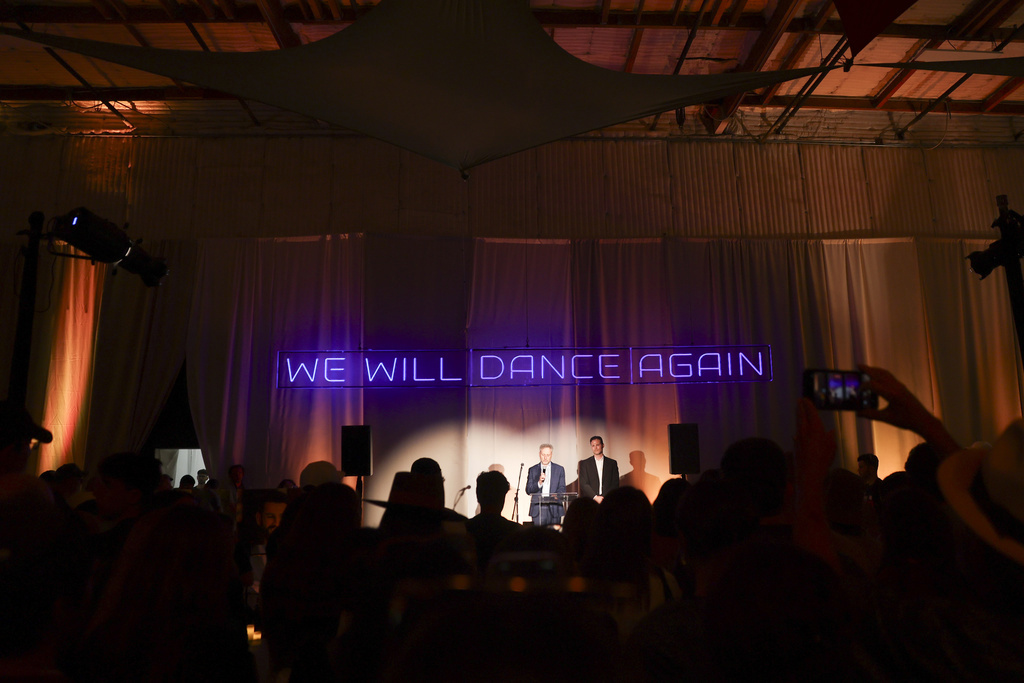
He accused Israel of introducing new conditions including increasing the number of prisoners who would be deported upon release and banning the release of elderly or ill prisoners serving life sentences.
Israel said the six hostages found dead in Gaza were killed by Hamas shortly before Israeli forces arrived in the tunnel where they were held. Three were reportedly scheduled to be released in the first phase of a cease-fire proposal discussed in July. The Israeli Health Ministry said autopsies had determined the hostages were shot at close range and died on Thursday or Friday.
Thousands attended the funeral Monday for one of the six, Israeli-American Hersh Goldberg-Polin. He was one of the best-known hostages, with his parents leading a high-profile campaign for the captives' release, meeting with Biden and Pope Francis and addressing the Democratic National Convention last month.
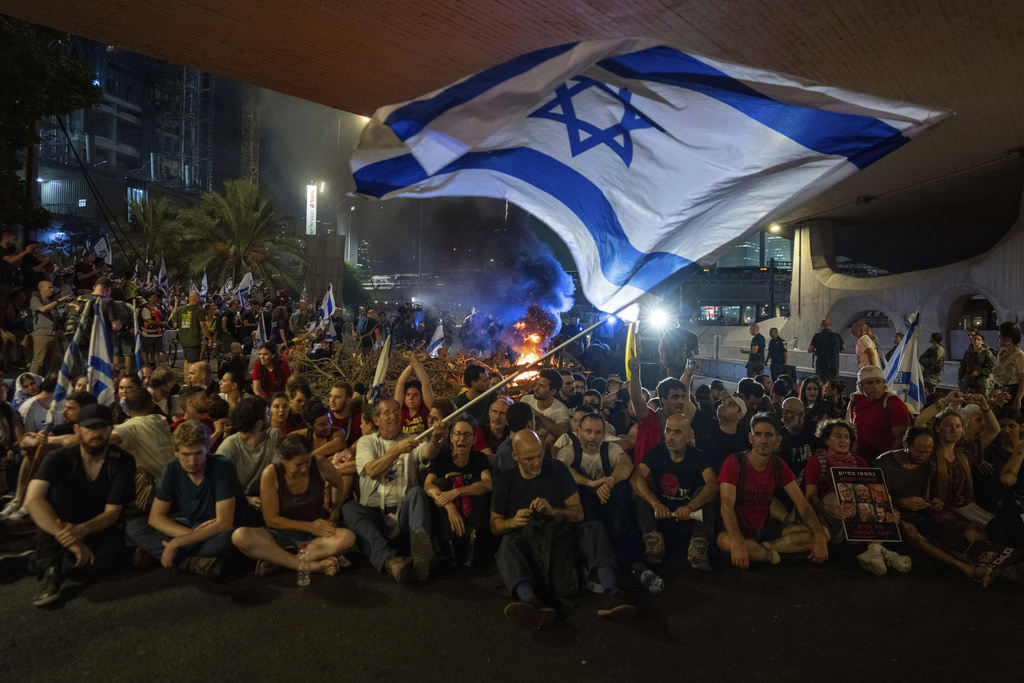
The general strike, called by Israel's largest trade union, the Histadrut, ended early after a labor court accepted a petition from the government calling it politically motivated.
It was the first such strike since the start of the war, aiming to shut down or disrupt major sectors of the economy, including banking and health care. Some flights at Israel's main international airport, Ben-Gurion, either departed early or were slightly delayed.
"There's no need to punish the whole state of Israel because of what is happening, overall, it is a victory for Hamas," said one passenger, Amrani Yigal.
But in Jerusalem, resident Avi Lavi said that "I think this is fair, the time has come to stand and to wake up, to do everything for the hostages to come back alive".
Municipalities in Israel's populated central area, including Tel Aviv, participated, leading to shortened school hours. Other municipalities, including Jerusalem, did not participate.
The demonstrations on Sunday appeared to be the largest since the start of the war, with organizers estimating that up to 500,000 people joined nationwide events and the main rally in Tel Aviv. Israeli media estimated that 200,000 to 400,000 took part.
They are demanding that Netanyahu reach a deal to return the remaining roughly 100 hostages held in Gaza, a third of whom are believed to be dead, even if it means leaving a battered Hamas intact and withdrawing from the territory. Many Israelis support this position, but others prioritise the destruction of the militant group over freedom for the hostages.
Netanyahu blamed Hamas, saying "whoever murders hostages doesn't want a deal."
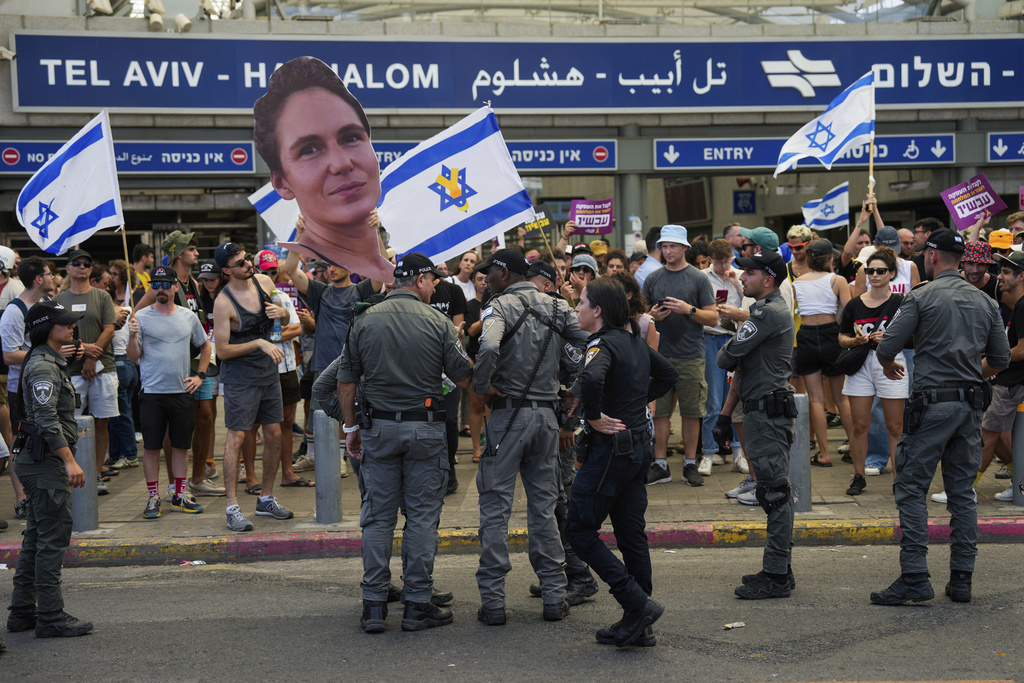
Hamas blamed their deaths on Israel and the US, accusing them of dragging out the talks by issuing new demands, including for lasting Israeli control over two strategic corridors in Gaza. Hamas has offered to release the hostages in return for an end to the war, the complete withdrawal of Israeli forces and the release of a large number of Palestinian prisoners, including high-profile militants.
One of the six hostages was Israeli-American Goldberg-Polin, 23, a native of Berkeley, California, who lost part of his left arm to a grenade in the October 7 attack. In April, Hamas issued a video that showed him alive, sparking protests in Israel.
He was one of the best-known hostages, and his parents had led a high-profile campaign for the captives' release, meeting with US President Joe Biden, Pope Francis, and addressing the Democratic National Convention last month.
Around 400 mourners gathered ahead of Goldberg-Polin's funeral outside the family residence, still draped with posters reading "Bring Hersh Home".
Waving Israeli flags, they marched toward the cemetery.
"It feels like he could have been my son," said Irit Dolev, whose two sons went to school with him.
"I've buried so many friends this year, but this is the hardest one, because he was alive," said Amit Levy, who was among hundreds of others at the cemetery.
Some 250 hostages were taken on October 7. More than 100 were freed during a cease-fire in November in exchange for the release of Palestinians imprisoned by Israel. Eight have been rescued by Israeli forces. Israeli troops mistakenly killed three Israelis who escaped captivity in December.
Hamas-led militants killed some 1200 people, mostly civilians, when they stormed into southern Israel on October 7. Israel's retaliatory offensive in Gaza has killed over 40,000 Palestinians, according to local health officials, who do not say how many were militants.
The war has displaced the vast majority of Gaza's 2.3 million people, often multiple times, and plunged the besieged territory into a humanitarian catastrophe, including new fears of a polio outbreak.
FOLLOW US ON WHATSAPP HERE: Stay across all the latest in breaking news, celebrity and sport via our WhatsApp channel. No comments, no algorithm and nobody can see your private details.
